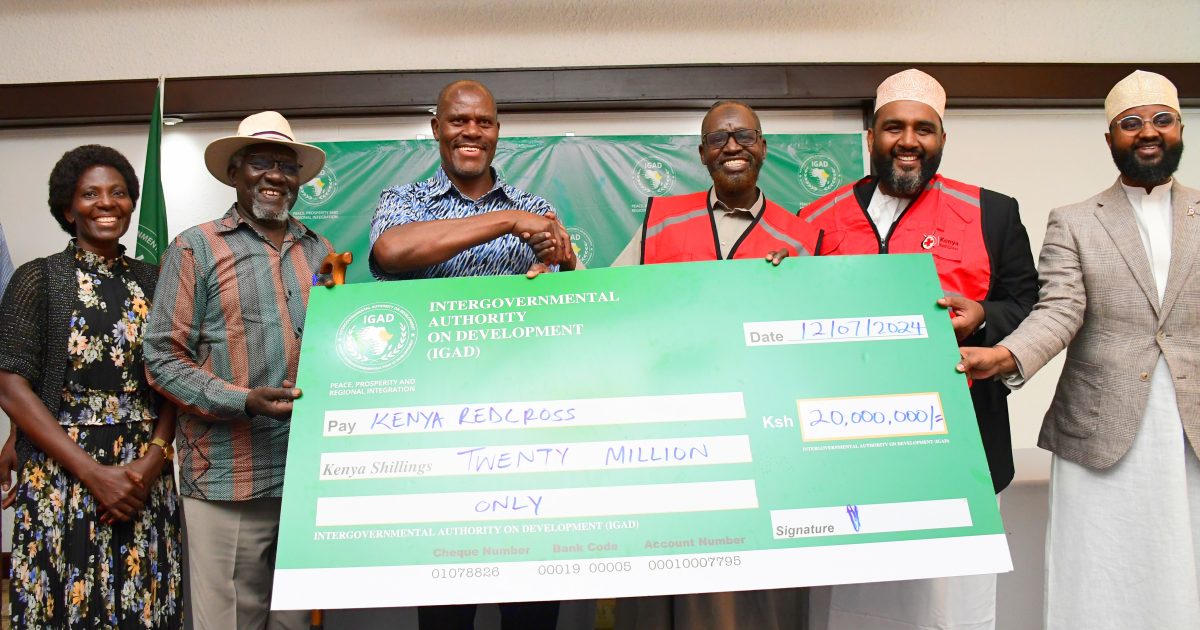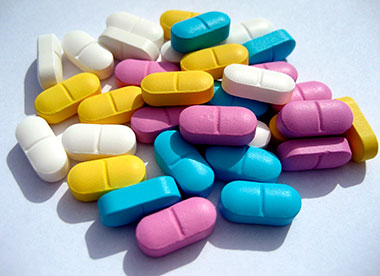The Intergovernmental Authority on Development (IGAD) has handed over financial support of Sh20 million to the Kenya Red Cross Society (KRCS) to bolster health services to communities affected by floods.
In April, the country witnessed devastating floods that wreaked havoc and left more than 200 people dead, scores injured, and loss of properties and destruction of infrastructures.
IGAD Executive Director (ED) Dr Workneh Gebeyehu’s speech was delivered by the Director of Administration and Finance Josephat Onyari at a Mombasa Hotel.
The recent floods, Dr Gebeyehu noted have wreaked havoc, displacing over 300,000 people, destroying 10,000 homes, and crippling essential services, including healthcare.
“This immense disaster demands urgent and decisive action. IGAD, in collaboration with our esteemed partners, recognises the pressing need to address the healthcare challenges the affected communities face,” said Dr Gebeyehu.
The financial support will be channelled towards the enhancement of medical facilities, ensuring the availability of essential medicines and supplies, and providing critical training to healthcare professionals in flood-affected counties.
The assistance was made possible through contributions of IGAD member states: Djibouti, Ethiopia, Kenya, Somalia, Sudan and Uganda, development partners to rebuild and strengthen healthcare systems in flood-affected counties.
Dr Geneyehu extolled the Red Cross for their dedication and effectiveness in responding to humanitarian crises across the country.
“Over the past year, they have provided emergency assistance to over one million people, showcasing their capability to mobilize resources swiftly and efficiently,” said Dr Geneyehu.
“Their compassionate actions have delivered life-saving medical care, shelter, clean water, and food to those in dire need, embodying the spirit of solidarity and humanitarian service,” he added.
The Executive Secretary further commanded the Red Cross for the setup of over 50 temporary health clinics, distributed more than 100,000 hygiene kits, and ensured clean water and sanitation for 200,000 individuals.
“The contribution is more than a financial transaction; it is a testament to our shared commitment to humanity. It reflects our belief that no community should be left behind, especially in times of crisis,” said Dr Geneyehu.
He added that the support also underscores IGAD’s dedication to strengthening health systems and building resilient communities capable of withstanding future challenges.
On his part, Red Cross Secretary General Dr Ahmed Idriss said the IGAD region has experienced a cyclic pattern of emergencies in recent times.
He noted that there is 83 per cent of climate change-induced disasters globally as a result of climate change.
“We are moving from a cycle of drought to floods and now floods to floods. It is only during this rainy season of October-December that we had to respond to the el-nino-induced flooding period. Just before communities resettled to their homes in February they were displaced by another flood season of March-April season,” explained Dr Idriss.
As a result of the unpredictable weather pattern Dr Idriss noted that the capacity of communities to withstand emergencies is being reduced by each emergency, the recovery period is short, and drought has a massive impact by reversing gains on infrastructures.
“In the last flood period about 73 health facilities were completely under water losing medication and equipment. Even after floods, we have to make investments back to the facilities to make them operational,” said Dr Idriss.
By Sadik Hassan





